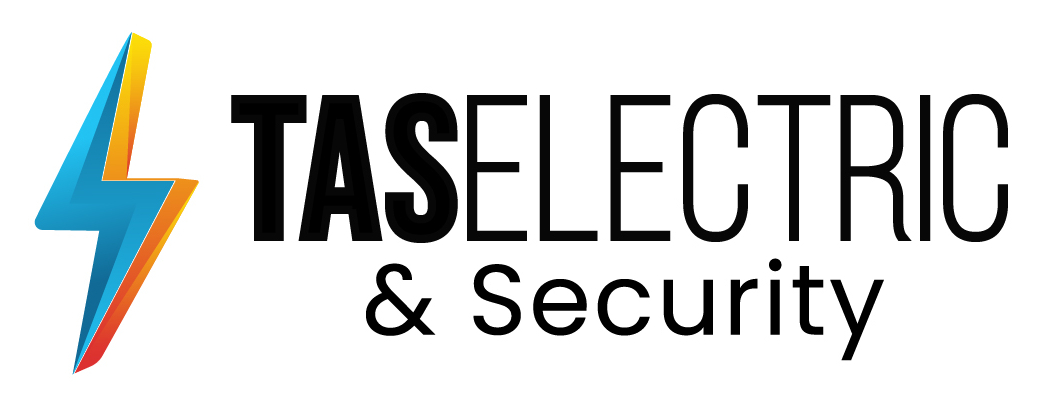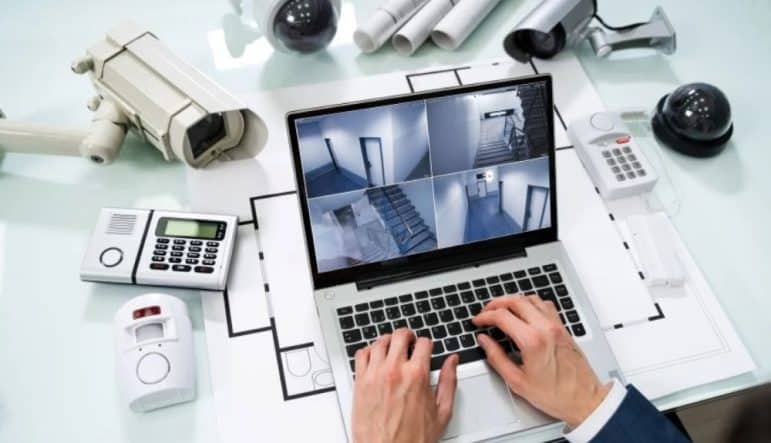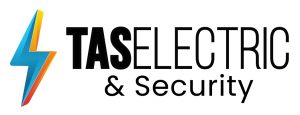Commercial Security System Installation – The Essential Elements for Effective Business Security…
 In today’s fast-paced business environment, ensuring the safety of your commercial property, employees, and assets is paramount. With increasing incidents of theft, vandalism, and other security breaches, investing in a robust commercial security system is not merely a precaution—it’s a necessity. This article delves into the critical components of commercial security, providing insights on how to create a comprehensive security strategy tailored to your business’s unique needs.
In today’s fast-paced business environment, ensuring the safety of your commercial property, employees, and assets is paramount. With increasing incidents of theft, vandalism, and other security breaches, investing in a robust commercial security system is not merely a precaution—it’s a necessity. This article delves into the critical components of commercial security, providing insights on how to create a comprehensive security strategy tailored to your business’s unique needs.
Understanding Commercial Security Systems
Commercial security systems encompass a range of technologies and protocols designed to protect businesses from unauthorized access, theft, and other threats. These systems can vary significantly in complexity and scope, depending on the specific requirements of the business.
Types of Commercial Security Systems
-
- Surveillance Systems: These systems typically include both indoor and outdoor cameras that provide real-time monitoring of the premises. They can deter criminal activity and serve as a valuable resource for investigations.
- Access Control Systems: These systems manage who can enter specific areas of a business, often utilizing keycards, biometric scanners, or mobile access solutions to restrict entry to authorized personnel only.
- Intrusion Detection Systems: These systems utilize sensors and alarms to detect unauthorized entry. They often include features like motion detectors and glass-break sensors.
- Fire and Safety Systems: Essential for any commercial establishment, these systems include smoke detectors, fire alarms, and emergency lighting to ensure the safety of occupants in case of fire.
- Integrated Security Solutions: Combining various elements into a cohesive security strategy allows for enhanced monitoring and response capabilities. This can include linking surveillance cameras to alarm systems or integrating access control with fire safety measures.
Benefits of Implementing a Comprehensive Security System
Investing in a commercial security system offers numerous advantages:
-
- Deterrence: The mere presence of security measures can discourage potential criminals from targeting your business.
- Protection of Assets: A well-designed security system safeguards valuable equipment, inventory, and sensitive data.
- Employee Safety: A secure workplace enhances employee morale and productivity, knowing they are protected from potential threats.
- Operational Efficiency: Many modern systems come equipped with analytics tools that can help streamline operations and improve decision-making.
- Peace of Mind: Knowing that your business is secure allows you to focus on growth and operations without constant worry.
Assessing Your Security Needs
Before implementing any security measures, it’s crucial to conduct a thorough assessment of your business’s specific security needs. This involves identifying potential vulnerabilities and understanding the unique risks associated with your industry.
Conducting a Risk Assessment
A comprehensive risk assessment should include the following steps:
-
- Identify Vulnerabilities: Examine all entry points, including doors, windows, and other access areas to determine weaknesses in your current security setup.
- Evaluate Crime Rates: Research crime statistics in your area to understand the likelihood of incidents occurring. This information can help you prioritize security measures.
- Consider Employee Safety: Evaluate the number of employees working after hours and their safety needs. This can influence the type of security measures required.
- Review Existing Security Measures: Analyze the effectiveness of any current security systems in place and identify areas for improvement.
Engaging Employees in Security Planning
Involving your employees in the security planning process can provide valuable insights. Encourage them to share their concerns and suggestions regarding workplace safety. This collaborative approach can lead to a more comprehensive security strategy.
Essential Components of a Commercial Security System
A well-rounded commercial security system should include a combination of various components tailored to meet your specific needs. Here are the key elements to consider:
Surveillance Cameras
Surveillance cameras are a fundamental aspect of any commercial security system. They can be used for both deterrence and evidence collection.
-
- Indoor Cameras: Placed strategically throughout the interior of the building, these cameras can monitor employee activity and prevent theft.
- Outdoor Cameras: These cameras are designed to withstand outdoor conditions and provide coverage of the exterior of the building, including entry points and parking lots.
- High-Definition Video: Opt for cameras with high-resolution capabilities to ensure clear footage, which is essential for identifying individuals and events.
Access Control Systems
Access control systems are vital for regulating who can enter specific areas of your business.
-
- Keycard Systems: These systems use keycards to grant access, allowing for easy tracking of who enters and exits.
- Biometric Scanners: Utilizing fingerprint or facial recognition technology, these systems offer a high level of security for sensitive areas.
- Mobile Access Solutions: Many modern systems allow employees to use their smartphones to gain entry, enhancing convenience and security.
Intrusion Detection Systems
Intrusion detection systems are designed to alert you to unauthorized access.
-
- Motion Sensors: These sensors detect movement in restricted areas and trigger alarms when activity is detected.
- Glass-Break Sensors: These sensors are specifically designed to detect the sound of breaking glass, providing an additional layer of security for windows.
- 24/7 Monitoring: Partnering with a monitoring service ensures that any alarms are responded to promptly, reducing response times.
Fire and Safety Systems
Fire safety is a critical aspect of commercial security.
-
- Smoke Detectors: These devices detect smoke and trigger alarms, alerting occupants to evacuate.
- Fire Alarms: Integrated fire alarm systems can notify emergency services automatically.
- Emergency Lighting: Ensures safe evacuation during a fire or power outage.
Budgeting for Commercial Security
Determining the budget for your commercial security system is essential to ensure you can implement the necessary measures without overspending.
Factors Influencing Cost
-
- Size of the Premises: Larger buildings will require more extensive security measures, including additional cameras and sensors.
- Complexity of the System: More advanced systems with integrated technologies will typically come at a higher cost.
- Installation Fees: Professional installation may incur additional costs, but it ensures that the system is set up correctly.
- Ongoing Monitoring Fees: If you opt for a monitoring service, consider the monthly fees associated with this service.
Cost-Benefit Analysis
Conducting a cost-benefit analysis can help justify the investment in a commercial security system. By weighing the potential losses from theft or damage against the cost of implementing security measures, you can make a more informed decision.
Selecting a Credible Security Provider
Choosing the right security provider is crucial for the successful implementation of your commercial security system.
Factors to Consider
-
- Experience and Reputation: Research the provider’s history and reputation in the industry. Look for reviews and testimonials from other businesses.
- Range of Services: Ensure that the provider offers a comprehensive range of services, including installation, monitoring, and maintenance.
- Customization Options: A good provider should be able to tailor solutions to meet your specific needs rather than offering a one-size-fits-all package.
- Customer Support: Evaluate the level of customer support provided, including response times and availability for troubleshooting.
Requesting Quotes and Proposals
Obtain quotes from multiple providers to compare pricing and services. This will help you find a provider that fits your budget and meets your security needs.
Implementing Your Security System
Once you have selected a provider and finalized your budget, it’s time to implement your commercial security system.
Planning the Installation
-
- Site Survey: Work with your security provider to conduct a thorough site survey to determine the optimal placement of cameras, sensors, and other components.
- Installation Timeline: Establish a timeline for the installation process to minimize disruption to your business operations.
- Employee Training: Ensure that your employees are trained on how to use the new security system effectively.
Testing the System
After installation, conduct a thorough testing of the system to ensure all components are functioning correctly. This includes checking camera angles, sensor sensitivity, and alarm response times.
Ongoing Maintenance and Support
Regular maintenance is essential to keep your commercial security system operating at peak performance.
Scheduling Routine Inspections
-
- Regular Check-Ups: Schedule periodic inspections with your security provider to ensure that all components are functioning correctly.
- Software Updates: Keep all software and firmware up to date to protect against new security vulnerabilities.
- Employee Refresher Training: Conduct regular training sessions to keep employees informed about security protocols and best practices.
Responding to Incidents
Having a clear incident response plan in place is critical for minimizing the impact of security breaches. Ensure that all employees are familiar with this plan and know their roles in the event of an incident.
The Future of Commercial Security
As technology continues to evolve, so too will the landscape of commercial security. Staying informed about the latest trends and innovations is essential for maintaining an effective security strategy.
Emerging Technologies
-
- Artificial Intelligence: AI-powered surveillance systems can analyze video footage in real-time, identifying suspicious behavior and alerting security personnel.
- IoT Integration: The Internet of Things allows for seamless communication between security devices, enhancing monitoring capabilities.
- Cloud-Based Solutions: Cloud storage for video footage and data allows for easier access and management of security information.
Preparing for Future Threats
As new threats emerge, businesses must remain vigilant and adaptable. Regularly reviewing and updating your security strategy will ensure that your business remains protected against evolving risks.
We Provide Security System Installation, Repairs, and Mainteance Services
When we’re designing a security system, we approach it with a comprehensive mindset. Our first step is to assess the property thoroughly, identifying potential vulnerabilities and entry points.
> Learn More
Investing in a comprehensive commercial security system is essential for safeguarding your business. By understanding the various components, assessing your specific needs, and selecting the right provider, you can create a robust security strategy that protects your employees, assets, and reputation. As technology continues to advance, staying informed and adaptable will help ensure that your business remains secure in an ever-changing landscape.
Contact Us (905-870-7779) for a Free Consultation!
—
About TASElectric & Security
TASElectric & Security offers comprehensive and cutting-edge electric and security services to clients with residential, commercial, industrial, or high-rise properties. Our team of highly skilled professionals have years of experience installing, maintaining, and inspecting electric and security systems and equipment.
> Learn More


